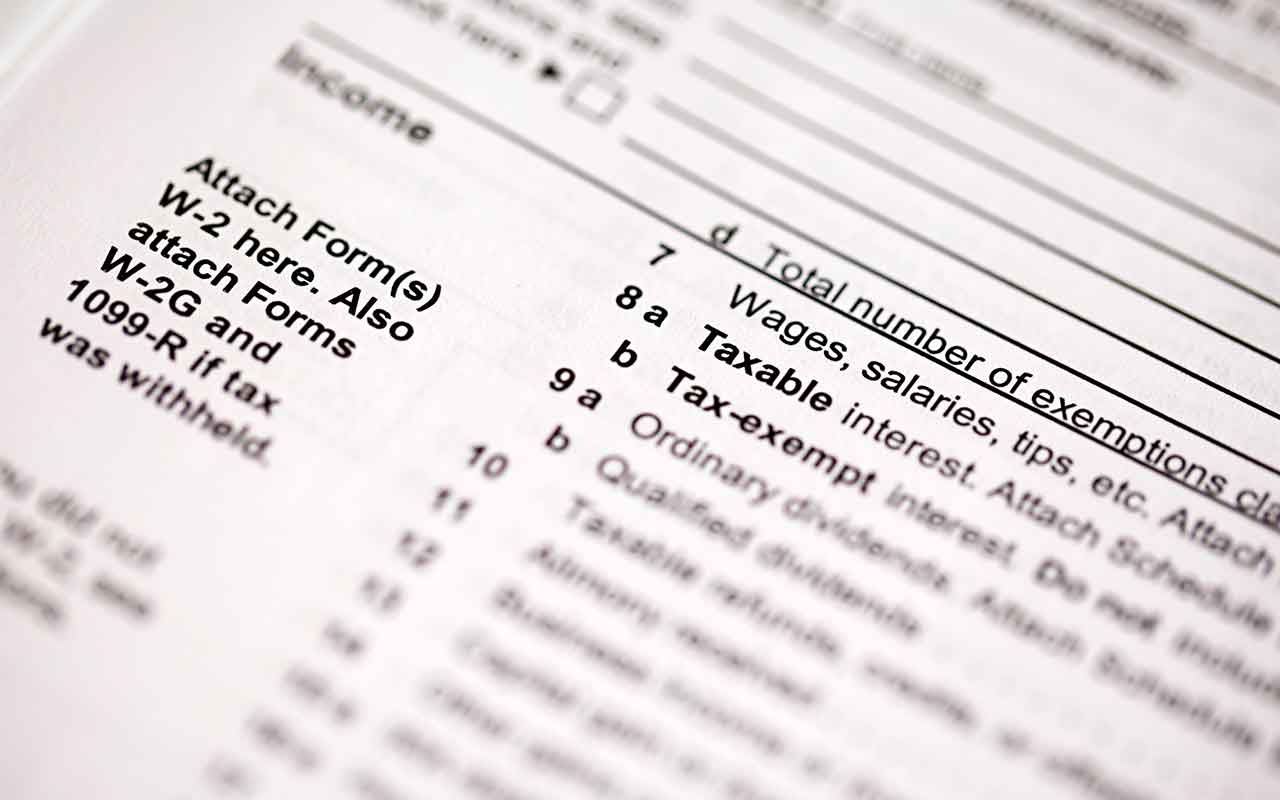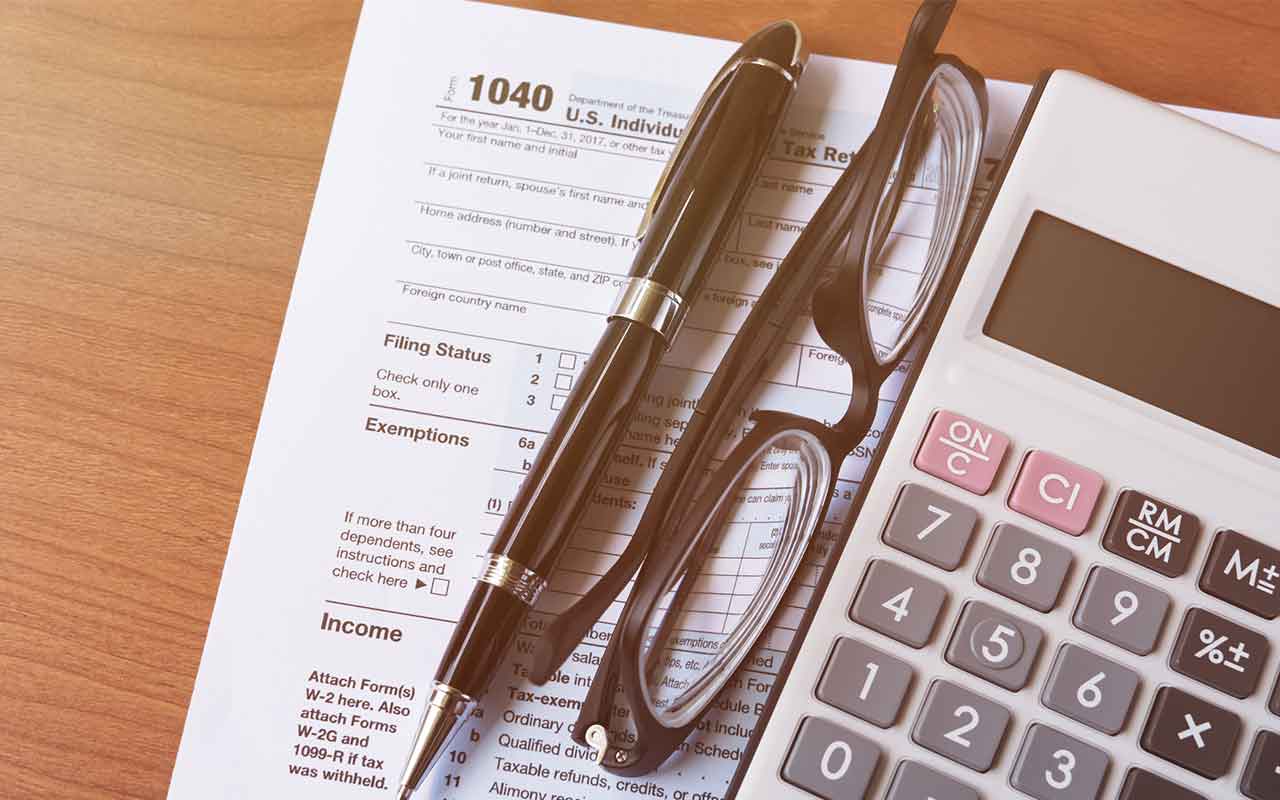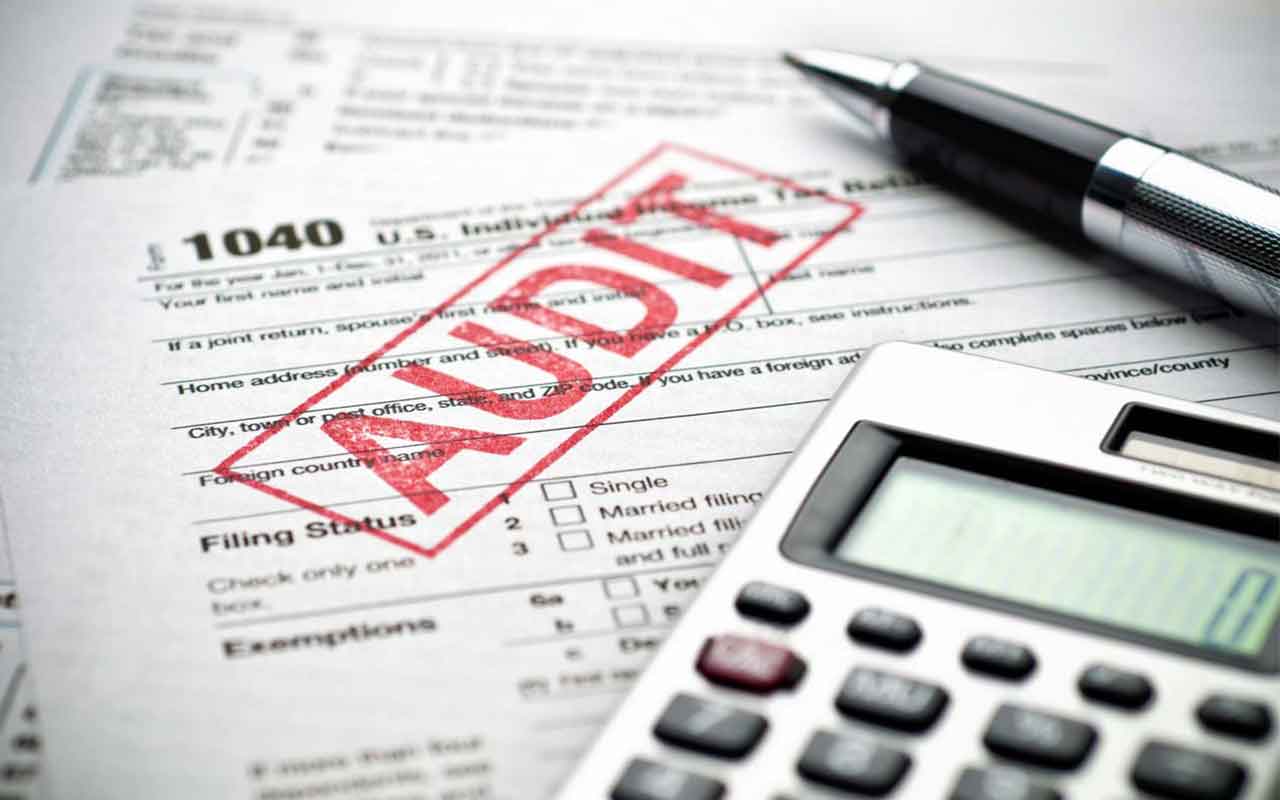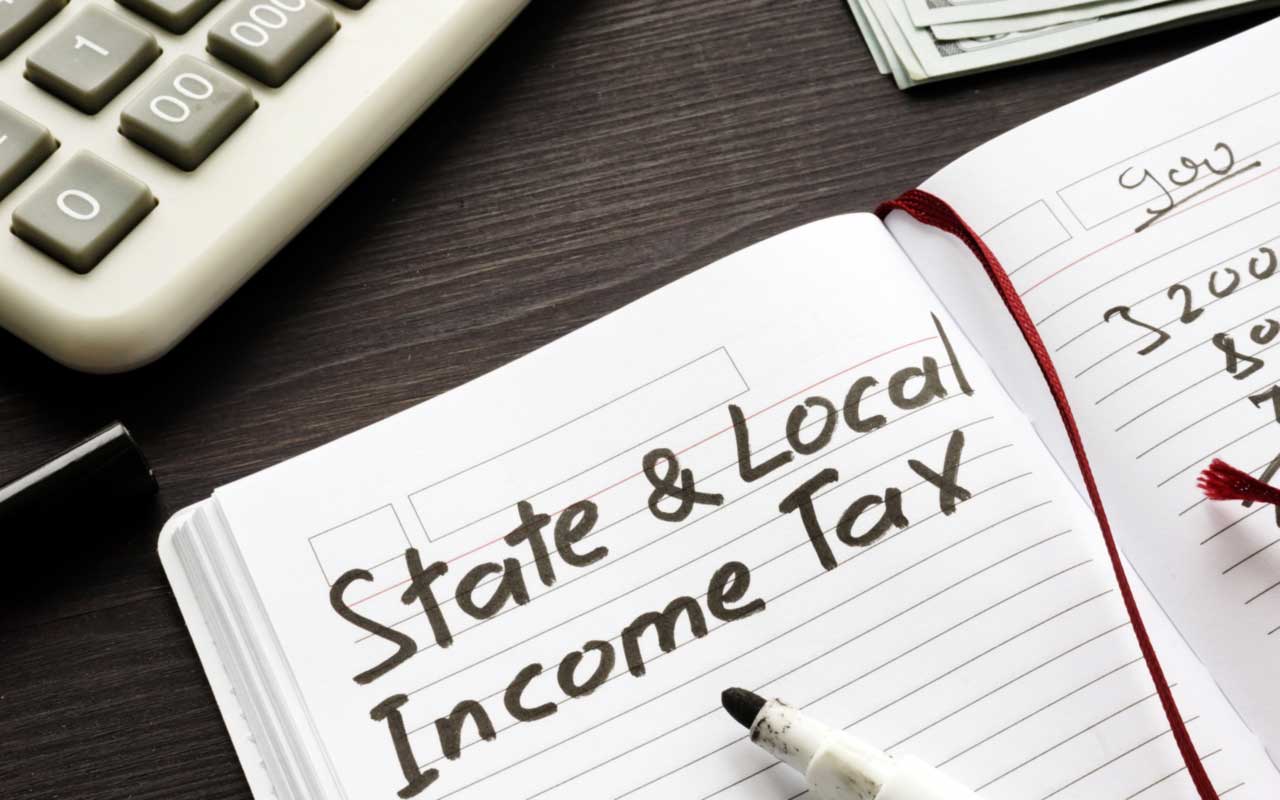Taxes on Gambling Winnings and Losses: Nine Tips to Remember
Whether it’s online sports betting, a casino win, or a horse bet, don’t forget the gambling taxes.

Kate Schubel

Profit and prosper with the best of Kiplinger's advice on investing, taxes, retirement, personal finance and much more. Delivered daily. Enter your email in the box and click Sign Me Up.
You are now subscribed
Your newsletter sign-up was successful
Want to add more newsletters?

Delivered daily
Kiplinger Today
Profit and prosper with the best of Kiplinger's advice on investing, taxes, retirement, personal finance and much more delivered daily. Smart money moves start here.

Sent five days a week
Kiplinger A Step Ahead
Get practical help to make better financial decisions in your everyday life, from spending to savings on top deals.

Delivered daily
Kiplinger Closing Bell
Get today's biggest financial and investing headlines delivered to your inbox every day the U.S. stock market is open.

Sent twice a week
Kiplinger Adviser Intel
Financial pros across the country share best practices and fresh tactics to preserve and grow your wealth.

Delivered weekly
Kiplinger Tax Tips
Trim your federal and state tax bills with practical tax-planning and tax-cutting strategies.

Sent twice a week
Kiplinger Retirement Tips
Your twice-a-week guide to planning and enjoying a financially secure and richly rewarding retirement

Sent bimonthly.
Kiplinger Adviser Angle
Insights for advisers, wealth managers and other financial professionals.

Sent twice a week
Kiplinger Investing Weekly
Your twice-a-week roundup of promising stocks, funds, companies and industries you should consider, ones you should avoid, and why.

Sent weekly for six weeks
Kiplinger Invest for Retirement
Your step-by-step six-part series on how to invest for retirement, from devising a successful strategy to exactly which investments to choose.
Gambling taxes are common because the United States gaming industry is booming.
From new casinos to lotteries and online sports betting, there are plenty of opportunities if you enjoy gambling.
And data from the American Gaming Association show that you wouldn't be alone. (About 55% of all American adults gambled in the last year.)
However, if you're lucky enough to win from a bet or smart gamble, don't forget that the federal government wants its cut through gambling taxes.
So, here are 9 things to know about how gambling winnings are taxed.
In the news: Trump Eyes 2026 Gambling Winnings Tax Change

1. You have to report gambling winnings
Whether it's $5 or $5,000, from the track, an office pool, a casino, or a gambling website, all gambling winnings must be reported on your tax return as "other income" on Schedule 1 (Form 1040). If you win a non-cash prize, such as a car or a trip, report its fair market value as income.
And be sure you report all your gambling winnings. The IRS isn't typically hunting down small-time winners, but you should file an accurate income tax return.

2. Taxes on gambling winnings: Form W-2G
Generally, you'll receive an IRS Form W-2G if your gambling winnings are at least $600 and the payout is at least 300 times the amount of your wager.
- For bingo and slot machine winnings, the threshold is $1,200.
- For keno winnings, the threshold is $1,500.
- For poker tournament winnings, the threshold is $5,000.
The payout doesn't have to be 300 times the wager for these types of winnings. Your reportable winnings will be listed in Box 1 of the W-2G form.
If a W-2G is required, the payer (sports betting parlor, casino, racetrack, lottery, etc.) will need to see two forms of identification.
- One form must be a photo ID.
- You also need to provide your Social Security number.
- If you don't have a SSN, then you'll need a taxpayer identification number (TIN).
In some cases, you'll get the W-2G on the spot. Otherwise, for 2025 winnings, the payer must send the form to you by Jan. 31, 2026.
In any event, if your bet was with a casino, we're fairly certain you'll get the W-2G. But if your bet was just a friendly wager with a friend or you won an office pool … well, don't count on it.

3. Gambling taxes: Withholding might be required
Generally, if you win more than $5,000 on a wager, and the payout is at least 300 times the amount of your bet, the IRS requires the payer to withhold 24% of your winnings for income taxes. (Special withholding rules apply for winnings from bingo, keno, slot machines, and poker tournaments.)
The amount withheld will be listed in Box 4 of the W-2G form you'll receive. You will also have to sign the W-2G stating under penalty of perjury, that the information listed on the form is correct.
When you file your 1040 for the tax year, include the amount withheld by the payer, as federal income tax withheld. It will be subtracted from the tax you owe. You'll also have to attach the W-2G form to your return.
Again, this is what to expect when you place a bet at a casino, racetrack, sports betting parlor, or with some other legally operated gaming business. Don't expect your friend who is running an office pool, for example, to withhold taxes (although, technically, they should).

4. Your gambling losses might be deductible
Did you have a bad night at the blackjack table or pick the wrong team to win? There's a possible silver lining if you lose a bet or two — your gambling losses might be deductible.
(Gambling losses include the actual cost of wagers plus related expenses, such as travel to and from a casino or other gambling establishment.)
There are a couple of important catches, though. First:
- Unless you're a professional gambler (more on that later), you have to itemize to deduct gambling losses (itemized deductions are claimed on Schedule A).
- Unfortunately, most people don't itemize. So, if you claim the standard deduction, you're out of luck twice — once for losing your bet and once for not being able to deduct your gambling losses.
The second important catch….
- You can't deduct gambling losses that are more than the winnings you report on your return.
- For example, if you won $100 on one bet but lost $300 on a few others, you can only deduct the first $100 of losses.
- This means that if you were totally down on your luck and had absolutely no gambling winnings for the year, you can't deduct any of your losses.
Also, according to the IRS, "to deduct your [gambling] losses, you must be able to provide receipts, tickets, statements or other records that show the amount of both your winnings and losses."
Note: If you are a professional gambler, you can deduct your losses as business expenses on Schedule C without having to itemize.
However, a note of caution: An activity only qualifies as a business if your primary purpose is to make a profit and you're continually and regularly involved in it. Sporadic activities or hobbies don't qualify as a business.

5. The new Trump tax bill introduces a cap on loss deductions
The so-called One Big Beautiful Bill (OBBB), signed into law by President Donald Trump on July 4, 2025, introduces a cap on deductions for gambling losses.
Starting January 1, 2026, gamblers will be able to deduct only 90% of their gambling losses against their winnings on federal taxes. (That’s a shift from the previous policy that allowed a full 100% deduction of gambling losses against winnings.)
However, some lawmakers are already trying to repeal the provision to restore the full deduction. So, stay tuned.
For more information, see: New Trump Gambling Loss Deduction Cap Coming Soon.

6. Report gambling winnings and losses separately on your tax return
Gambling winnings and losses must be reported separately.
For example, imagine you made four separate $100 bets on four different horses to win a race. If you won $500 for the one bet you got right, you must report the full $500 as taxable income. You can't reduce your gambling winnings ($500) by your gambling losses ($400) and only report the difference ($100) as income. If you itemize, you can claim a $400 deduction for your losses, but your winnings and losses must be handled separately on your tax return.

7. Keep good records of your gambling winnings and losses
To help you keep track of how much you've won or lost during the year, the IRS suggests keeping a diary or similar record of your gambling activities.
At a minimum, your records should include:
- The dates and types of specific wagers or gambling activities
- The name and address/location of each casino, racetrack, or other gambling establishment you visited
- The names of other people with you at each gambling site, and
- The amounts that you won or lost.
You should also keep other items as proof of gambling winnings and losses. For example, hold on to all W-2G forms, wagering tickets, canceled checks, credit records, bank withdrawals, and statements of actual winnings or payment slips provided by casinos, sports betting parlors, racetracks, or other gambling establishments.

8. Audit risks may be higher with gambling taxes
If you receive a W-2G form along with your gambling winnings, don't forget that the IRS is also getting a copy of the form. So, the IRS expects you to claim those winnings on your tax return.
Recently, a new report found that millions of taxpayers could be impacted by increased compliance and tax collection efforts. In addition to hauling back billions from high-income earners, the IRS is taking action to improve gambling compliance.
Read more in Kiplinger’s report, Is the IRS Coming for Your Gambling Winnings?
Deducting large gambling losses can also raise red flags at the IRS. Remember, casual gamblers can only claim losses as itemized deductions on Schedule A up to the amount of their winnings.
Be careful if you're deducting losses on Schedule C, too. The IRS is always looking for supposed "business" activities that are just hobbies.

9. Gambling winnings: State and local taxes may apply
If you look carefully at Form W-2G you'll notice there are boxes for reporting state and local winnings and withholding. That's because you may also owe state or local taxes on your gambling winnings.
The state where you live generally taxes all your income — including gambling winnings. However, if you travel to another state to place a bet, you might be surprised to learn that the other state wants to tax your winnings. And they could withhold the tax from your payout to ensure they get what they're owed.
You won't be taxed twice, though. The state where you live should give you a tax credit for taxes you pay to the other state.
Also, you may or may not, be able to deduct gambling losses on your state tax return. Check with your state tax department for the rules where you live.
Related Content
- 2025 Income Tax Brackets
- Did You Bet on the Super Bowl? Don't Forget About Taxes
- New Gambling Loss Deduction Cap Starts Soon
- How Long Should You Keep Tax Records?
- Is Your State Coming For Your Online Sports Bets?
Profit and prosper with the best of Kiplinger's advice on investing, taxes, retirement, personal finance and much more. Delivered daily. Enter your email in the box and click Sign Me Up.
Rocky Mengle was a Senior Tax Editor for Kiplinger from October 2018 to January 2023 with more than 20 years of experience covering federal and state tax developments. Before coming to Kiplinger, Rocky worked for Wolters Kluwer Tax & Accounting, and Kleinrock Publishing, where he provided breaking news and guidance for CPAs, tax attorneys, and other tax professionals. He has also been quoted as an expert by USA Today, Forbes, U.S. News & World Report, Reuters, Accounting Today, and other media outlets. Rocky holds a law degree from the University of Connecticut and a B.A. in History from Salisbury University.
- Kate SchubelTax Writer
-
 5 Vince Lombardi Quotes Retirees Should Live By
5 Vince Lombardi Quotes Retirees Should Live ByThe iconic football coach's philosophy can help retirees win at the game of life.
-
 The $200,000 Olympic 'Pension' is a Retirement Game-Changer for Team USA
The $200,000 Olympic 'Pension' is a Retirement Game-Changer for Team USAThe donation by financier Ross Stevens is meant to be a "retirement program" for Team USA Olympic and Paralympic athletes.
-
 10 Cheapest Places to Live in Colorado
10 Cheapest Places to Live in ColoradoProperty Tax Looking for a cozy cabin near the slopes? These Colorado counties combine reasonable house prices with the state's lowest property tax bills.
-
 10 Cheapest Places to Live in Colorado
10 Cheapest Places to Live in ColoradoProperty Tax Looking for a cozy cabin near the slopes? These Colorado counties combine reasonable house prices with the state's lowest property tax bills.
-
 New Gambling Tax Rule Means More Tax on Super Bowl 2026 Bets
New Gambling Tax Rule Means More Tax on Super Bowl 2026 BetsTaxable Income When Super Bowl LX hype fades, some fans may be surprised to learn that sports betting tax rules have shifted.
-
 Should You Do Your Own Taxes This Year or Hire a Pro?
Should You Do Your Own Taxes This Year or Hire a Pro?Taxes Doing your own taxes isn’t easy, and hiring a tax pro isn’t cheap. Here’s a guide to help you figure out whether to tackle the job on your own or hire a professional.
-
 Can I Deduct My Pet On My Taxes?
Can I Deduct My Pet On My Taxes?Tax Deductions Your cat isn't a dependent, but your guard dog might be a business expense. Here are the IRS rules for pet-related tax deductions in 2026.
-
 Don't Overpay the IRS: 6 Tax Mistakes That Could Be Raising Your Bill
Don't Overpay the IRS: 6 Tax Mistakes That Could Be Raising Your BillTax Tips Is your income tax bill bigger than expected? Here's how you should prepare for next year.
-
 Oregon Tax Kicker in 2026: What's Your Refund?
Oregon Tax Kicker in 2026: What's Your Refund?State Tax The Oregon kicker for 2025 state income taxes is coming. Here's how to calculate your credit and the eligibility rules.
-
 3 Retirement Changes to Watch in 2026: Tax Edition
3 Retirement Changes to Watch in 2026: Tax EditionRetirement Taxes Between the Social Security "senior bonus" phaseout and changes to Roth tax rules, your 2026 retirement plan may need an update. Here's what to know.
-
 Tax Season 2026 Is Here: 8 Big Changes to Know Before You File
Tax Season 2026 Is Here: 8 Big Changes to Know Before You FileTax Season Due to several major tax rule changes, your 2025 return might feel unfamiliar even if your income looks the same.

